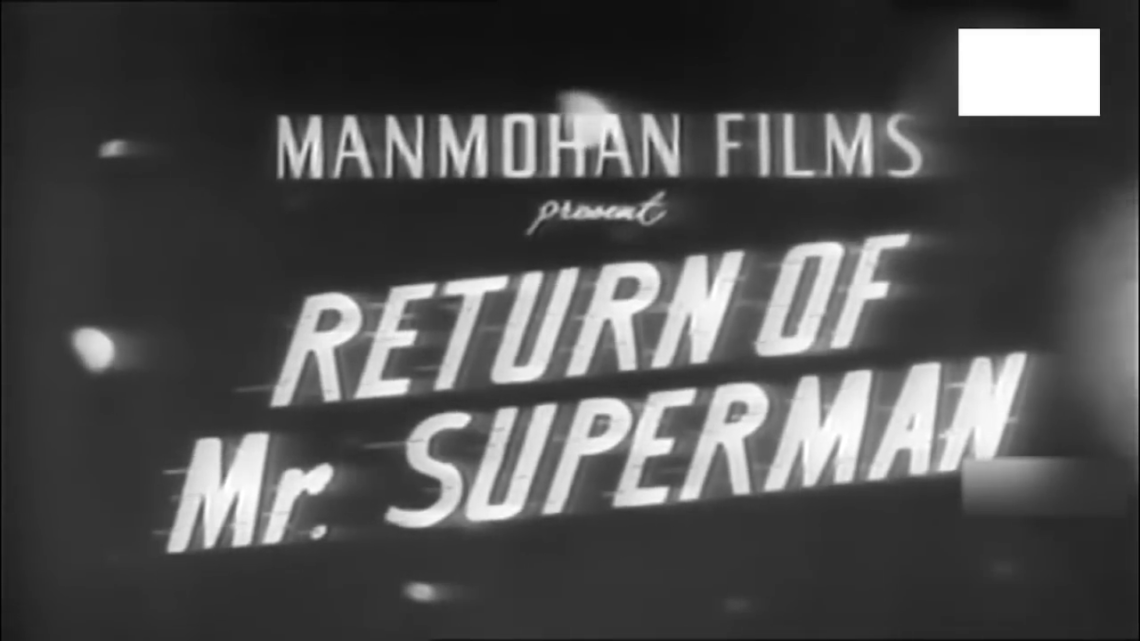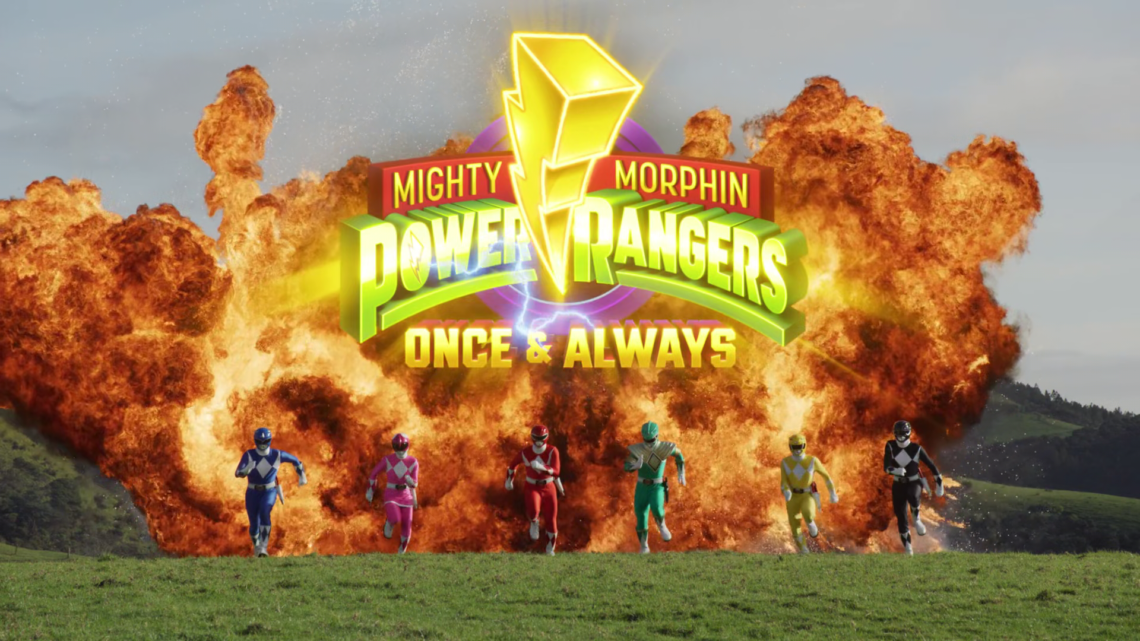-
#560 – PK (2014)
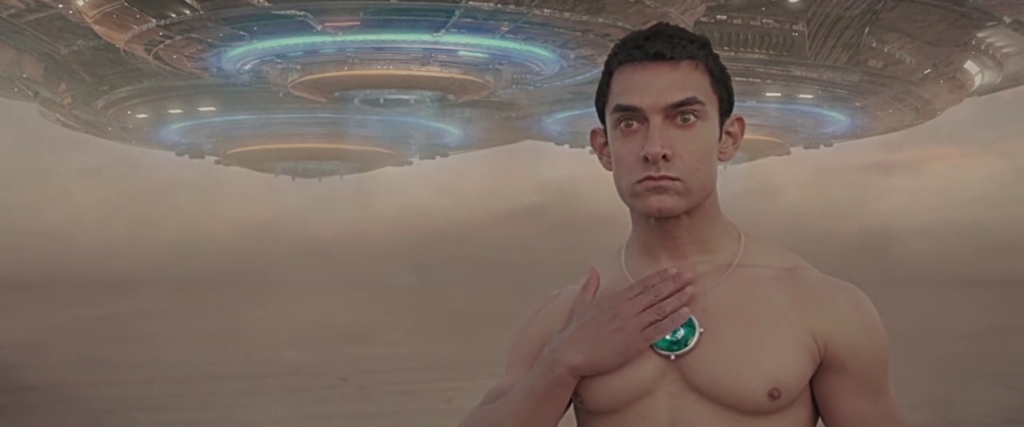



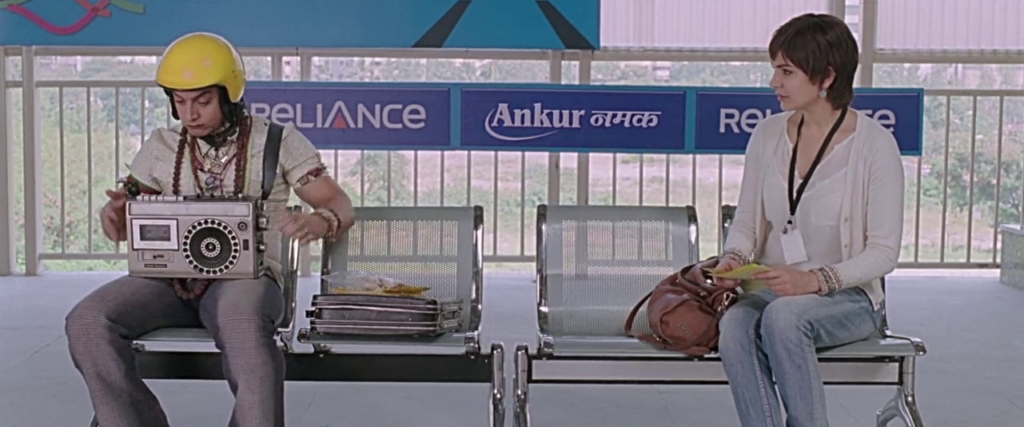
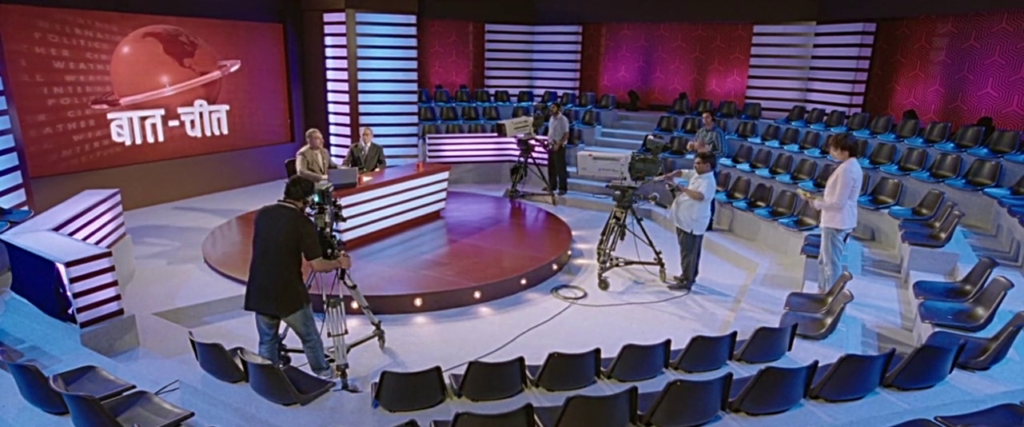
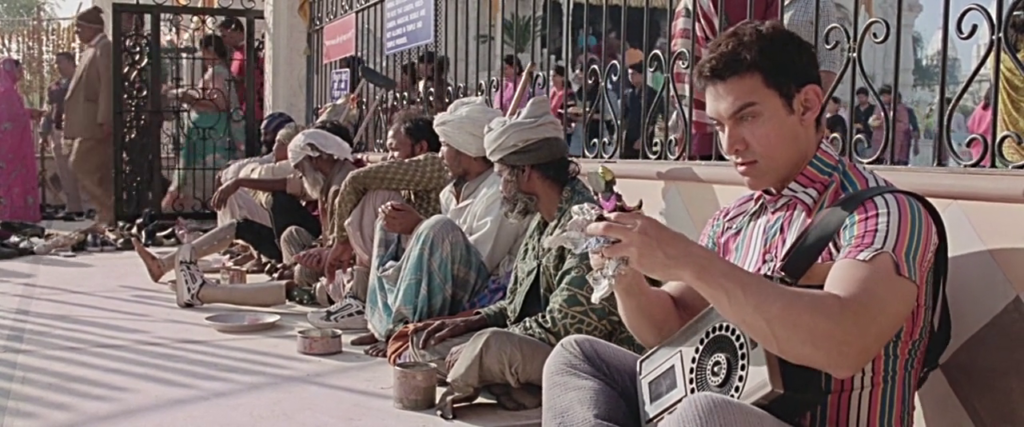
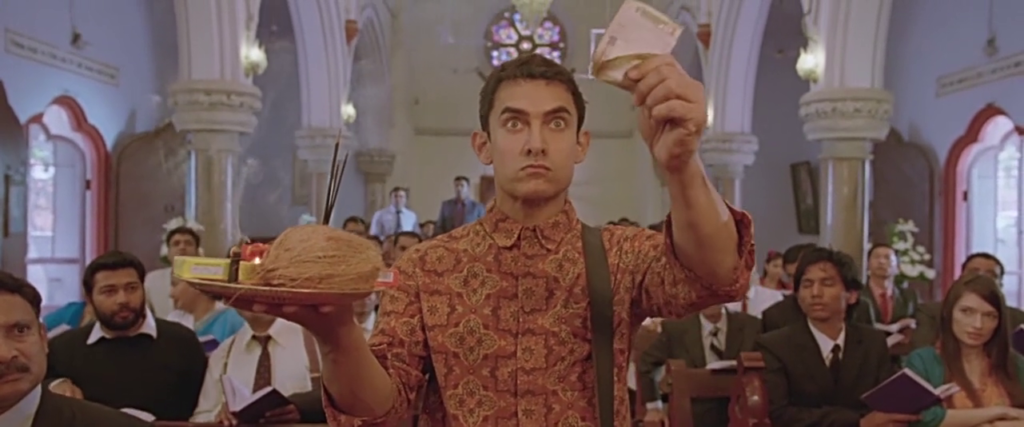

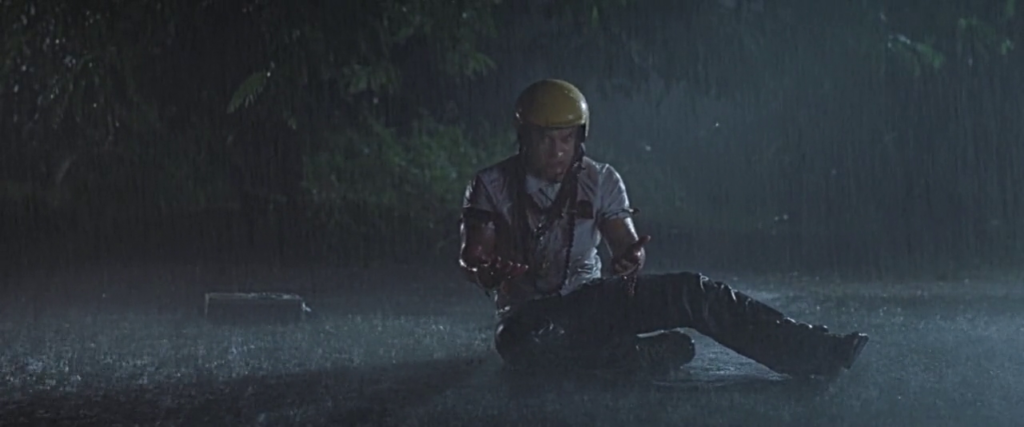
PK (2014)
Film review #560
Director: Rajkumar Hirani
SYNOPSIS: An alien arrives on Earth, and has his communicator with his spaceship stolen. Now stranded on the planet, he attempts to learn how to survive and learn the ways of the people here, but he is especially confused by the concept of religion. He meets Jaggu, a reporter who is looking for her next big story. She is intrigued by his naivety and how his simple questions challenge the conflicts between different religions, and how those that profess to know what God wants are the ones who know least about religion. Jaggu and PK show down with Tapaswi, a religious leader who has come into possession of PK’s communicator, claiming to be a religious artefact, and the pair try to expose him and get PK’s communicator back to he can return home…
THOUGHTS/ANALYSIS: PK is a 2014 Indian sci-fi film. The story primarily revolves around PK, an alien who, in the film’s opening, lands on Earth, and shortly after has his communicator with his spaceship stolen, meaning he has no way to get back home. Attempting to adjust to life on Earth, he turns to God for help, but is perpetually confused by all of the different religions and their rules. He eventually encounters Jaggu, a reporter who is looking out for a worthwhile story, and becomes interested by PK’s naïve take on the world, and how it provides genuine insight on the world from a fresh perspective. Opting to tackle the absolute minefield that is differences and conflicts between religions, PK from the outset sets itself a dangerous task, but the comedic aspect of the film never strays into being offensive or controversial, focusing on what the religions have in common, rather than their confrontations. This might seem to be a bit simplistic, but this is one of the film’s greatest strengths; it manoeuvres through it’s subject in such an expert manner that it creates an entertaining experience full of life. On top of this, the dialogue and performances are precise and genuine, and again, are professionally executed.
The film is essentially divided into two halves: the first half deals with the more comedic aspects and a very “fish out of water” situation surrounding PK being stranded on Earth. The second half switches to a more drama and serious tone, with PK trying to expose the religious preacher Tapaswi, and get back his communicator that Tapaswi is claiming to be a religious icon to his followers. Again, when the film gets serious, it still maintains it’s expert exploration of it’s subject: avoiding being controversial, but still making a significant statement and creating some intense emotional moments. Even though the film is almost split down the middle, the change of tone doesn’t feel artificial, and feels like it moves on just when it needs to. If I were to find a fault in the plot, I would say the forced romance element that shows up at the final part of the film and about “letting go” just didn’t really need to be there, but even then, it is handled so well in terms of dialogue and acting, and producing a emotional reaction that it doesn’t really matter that it wasn’t really necessary, because it still produces something worthwhile.
The cast work so well in their roles, and although they are roles you are probably familiar with, such as PK being a clueless alien adjusting to life on Earth, they are still brought to life vibrantly, as mentioned, through stellar acting and sharp dialogue, and in the end it feels like you come out of it with a well rounded experience that never hits a lull. Despite having a few bumps in the story with a few elements that it could have done without, I think it is necessary to give PK high praise as a film: it is lots of fun, but also very heartfelt, alongside making a powerful statement without being mired in controversy. The film deserves the praise it received, and in particular, the absolutely solid script and dialogue, enhanced further with a host of strong performances. Not quite perfect, but deserving of it’s huge success.
-
#559 – The Magnetic Monster (1953)
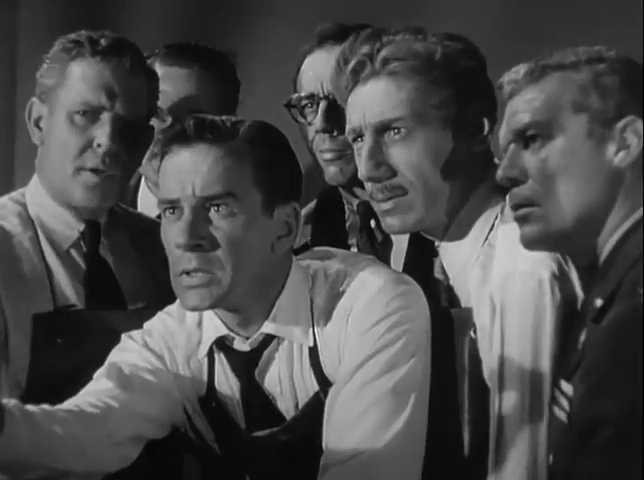
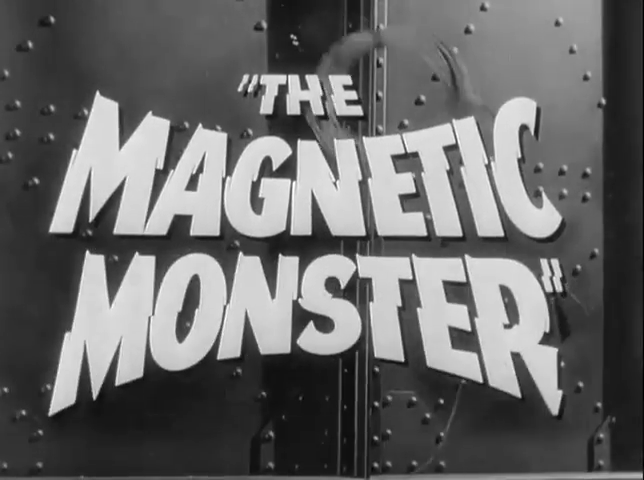
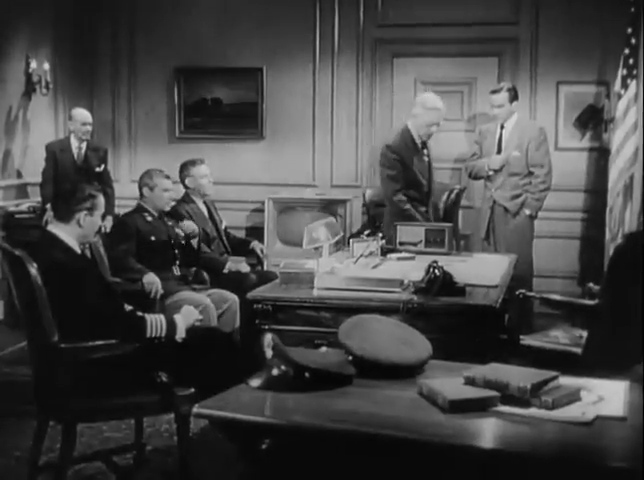
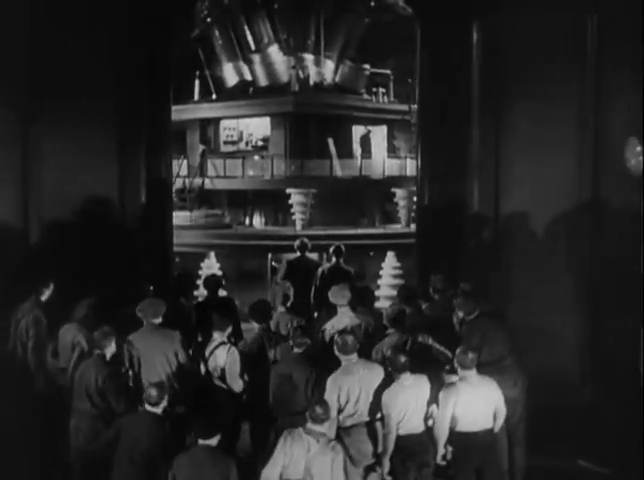
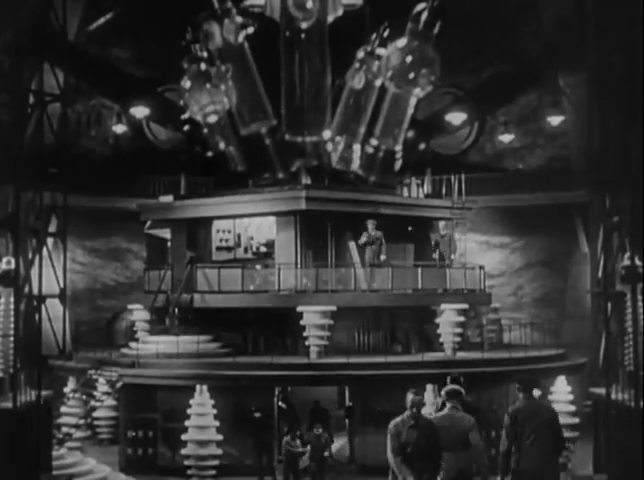
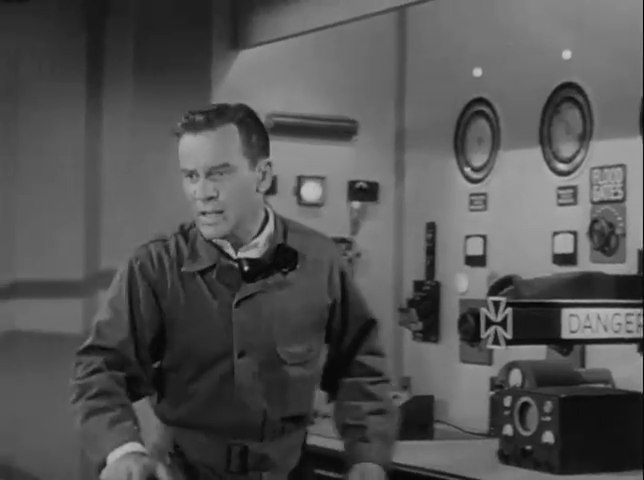
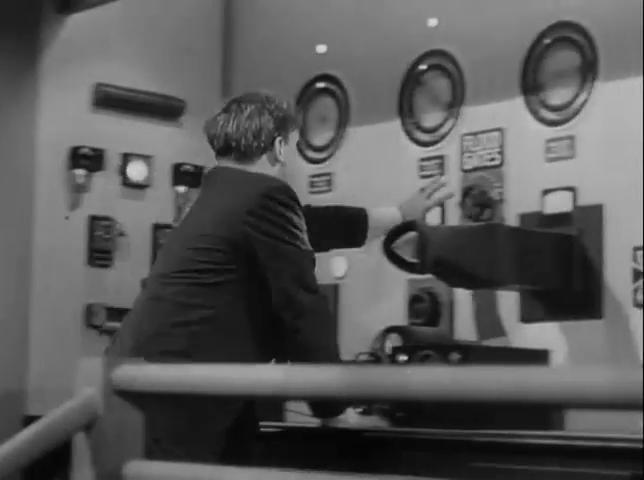
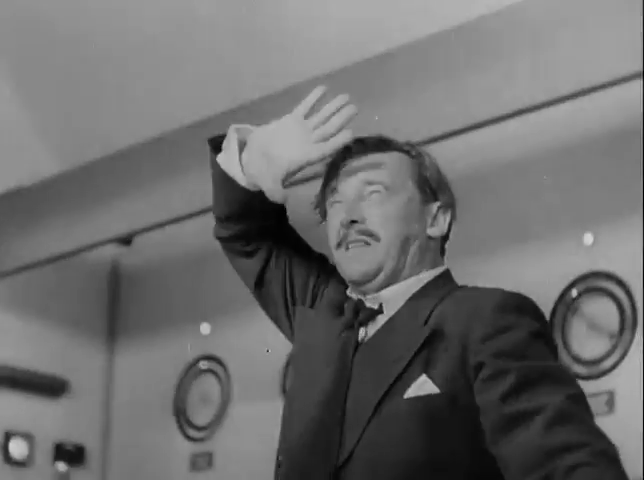
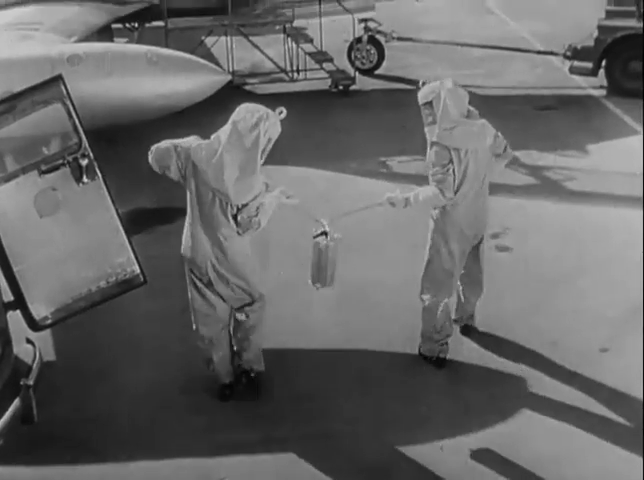
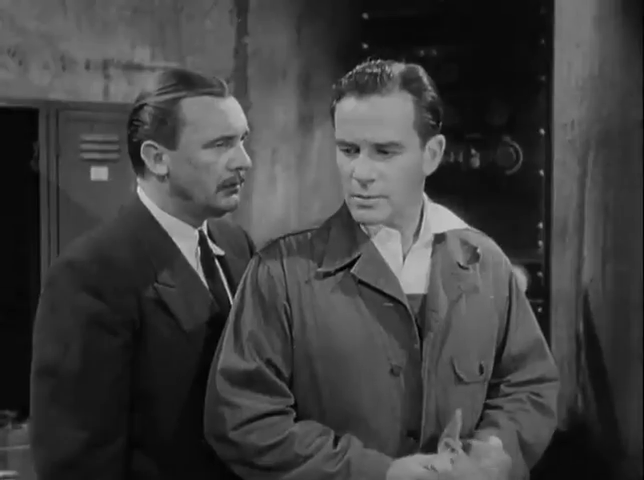
The Magnetic Monster (1953)
Film review #559
Directors: Curt Siodmak, Herbert L. Strock
SYNOPSIS: The Office of Science Investigation (OSI), made to deal with new threats in the atomic age, send their agents, led by Jeffrey Stewart, to investigate a case of strange, powerful magnetism. It turns out that the incident is caused by the research of a scientist who has created a new element that is feeding off energy, and threatens all life on Earth…
THOUGHTS/ANALYSIS: The Magnetic Monster is a 1953 science-fiction film. In the opening, we get a monologue about the threats faced in the new atomic age, and in response to this, the Office of Scientific Investigations (OSI) is established to counter this new threat. One of their A-men, (atomic-men) agents, named Jeffrey Stewart, is called to investigate a strange case involving items becoming magnetised, and stumbles upon some dangerous research and a new element that could threaten to destroy the earth. The film has a very serious tone to it: the narration by the main character is very dramatic and dry, and reminds me more of what you would find in a crime-noir film. The plot itself is decently structured, with some mystery that unfolds at an even pace. The narration helps explains the story, but perhaps overdoes it by relying on it too much rather than showing the story.
At a time of cheap b-movies which were cheap looking that leads them to not being taken seriously, The Magnetic Monster does put some effort into treating the new era of atomic warfare seriously, which presented science almost as if it was exclusively a weapon of war. As mentioned, the narration gives the film a very serious tone, and there’s not much light-heartedness or humour to supplement it. There’s also not really that much action: the “Magnetic Monster” is just some sort of…radioactive element that can only be seen through a microscope, so it limits how much of a threat it can be perceived it to be, but the effects it makes look quite nice. The characters are all fairly bland and similar: just middle-aged men in uniforms talking or arguing with each other, with a grand total of one female character, who’s only role is as Jeff’s wife.
Despite being an independently produced film, there’s some good points about the production: there’s a variety of sets and locations, and they’re fairly detailed so you get a sense of the different locations. The huge machine at the end of the film is quite impressive, but the footage of it is taken from the 1934 German film Gold, and the finale of The Magnetic Monster essentially revolves around the use of the footage from Gold, taking place in an underwater facility that provides the climax for a series of explosions. The Magnetic Monster feels like something a bit different from the usual 50′s sci-fi b-movie. It takes the spirit of the time seriously and delivers a sombre and straight story without any cheesy monsters of special effects. the downside to this is that it’s not that entertaining, and a lack of action and energy might this film difficult to concentrate on through it’s runtime.
-
#558 – Return of Mr. Superman (1960)
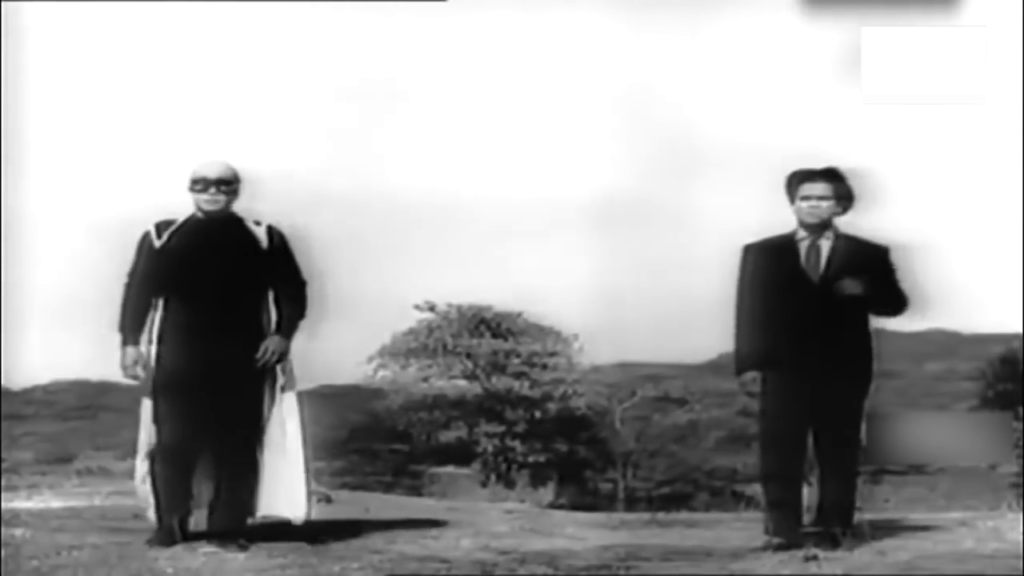
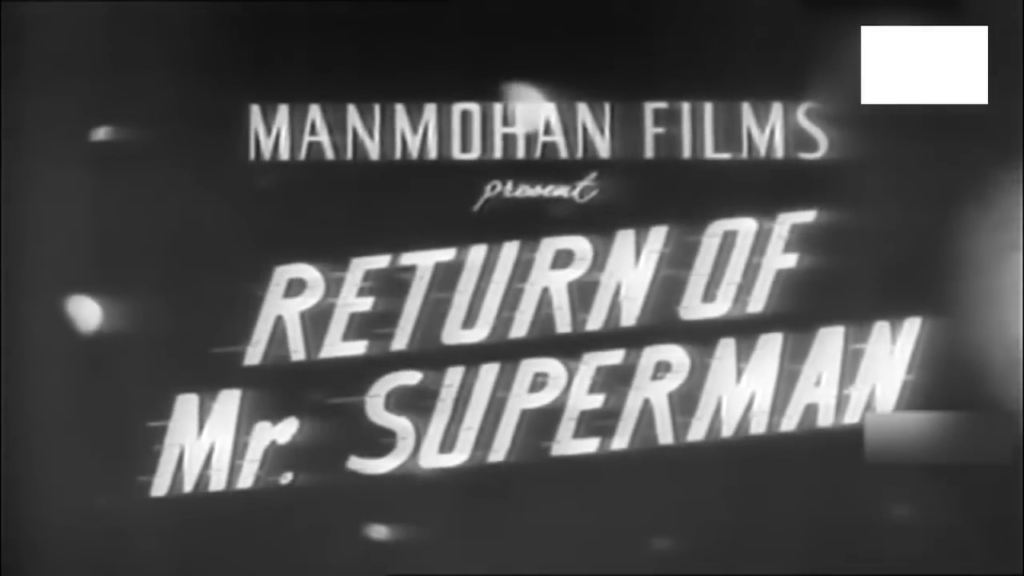
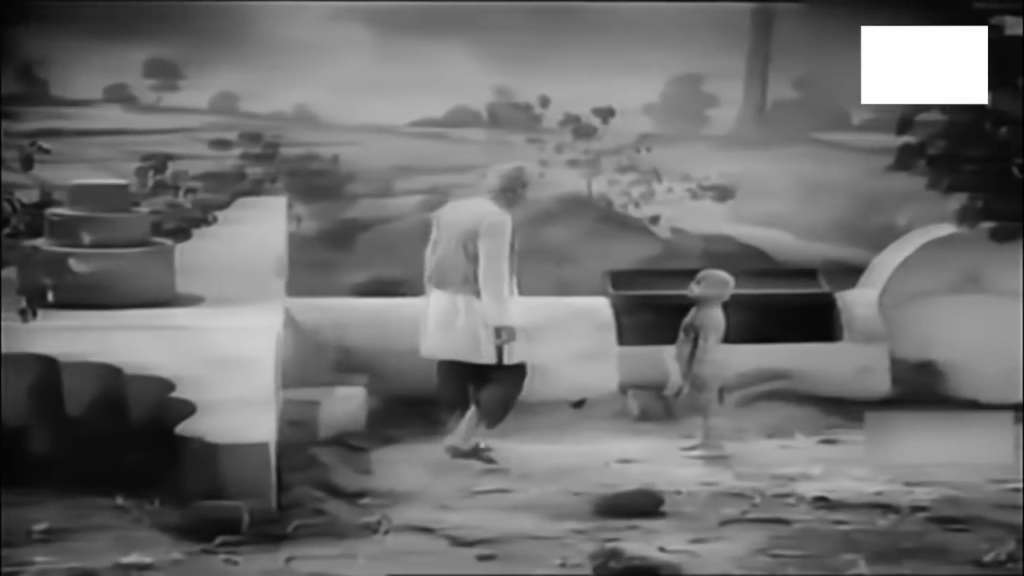
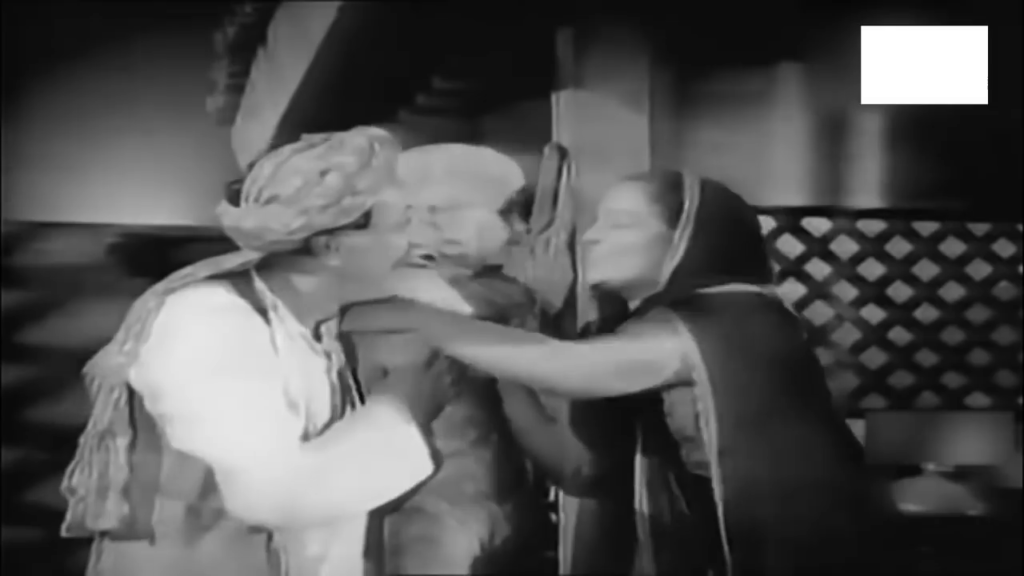
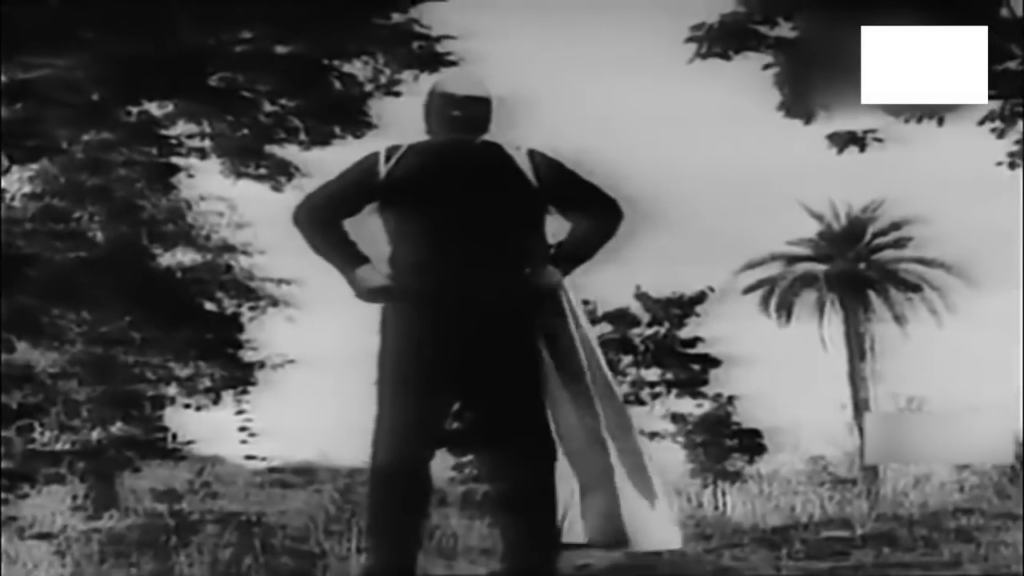
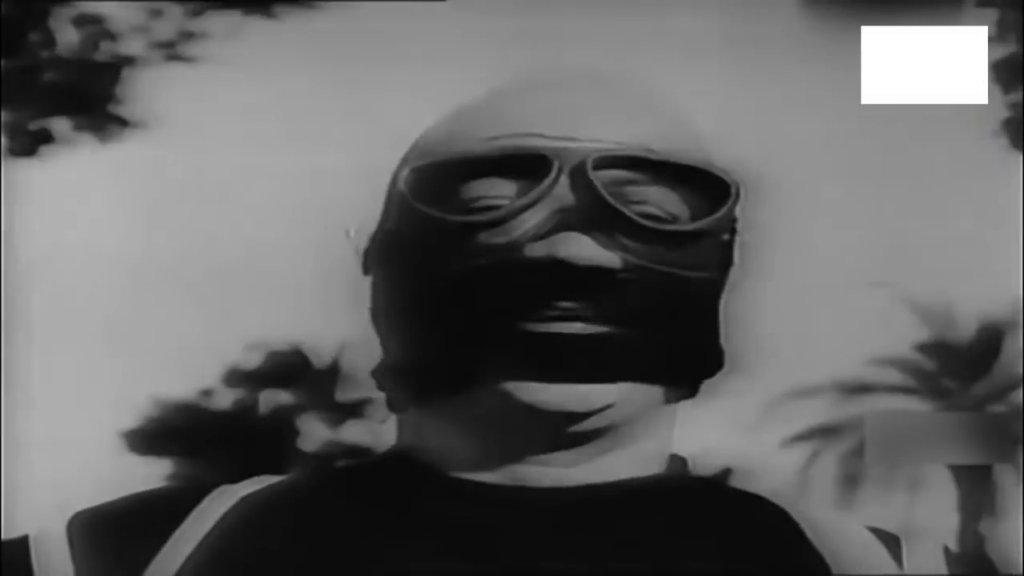
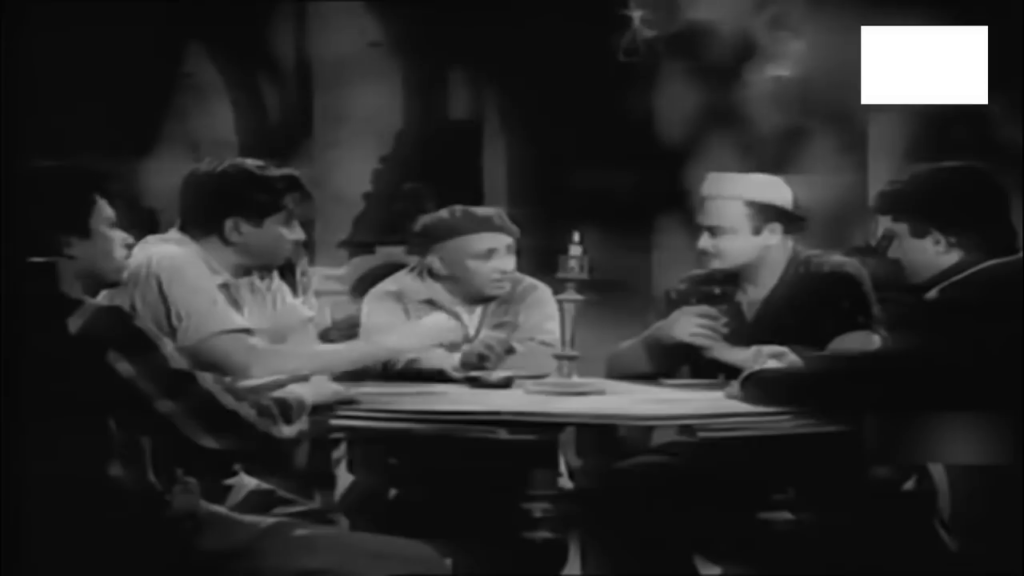
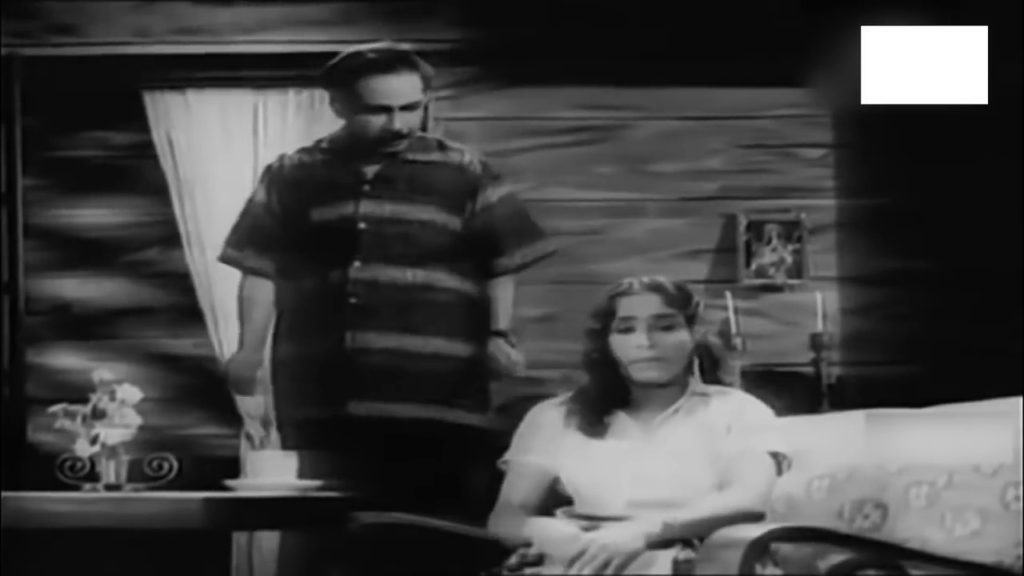
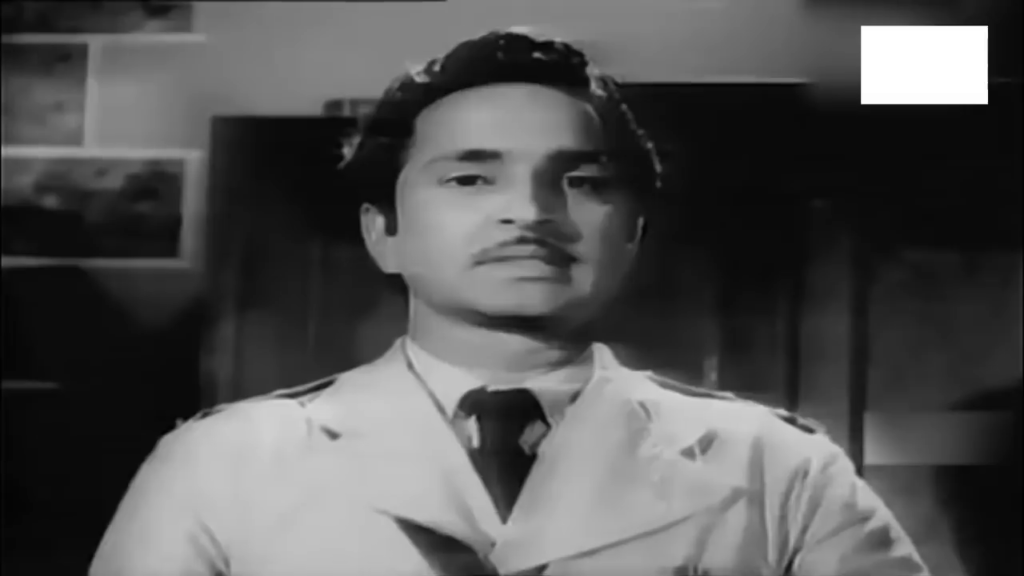
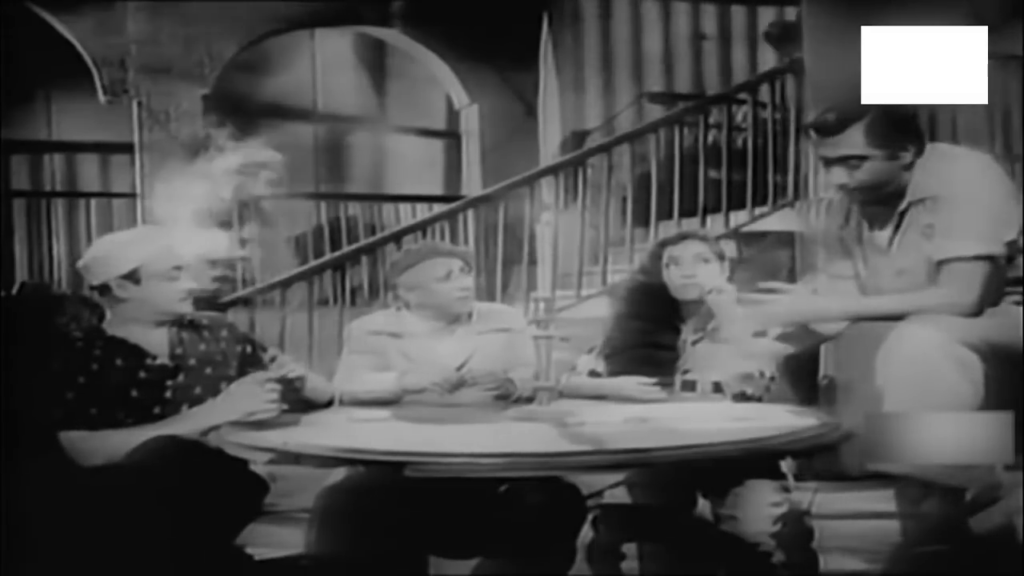
Return of Mr. Superman (1960)
Film review #558
Director: Sabir Manmohan
SYNOPSIS: A child from the doomed planet Krypton is sent to Earth as the last of their kind, and lands in rural India. A farmer finds the ship and the child inside, and takes them back to his wife, where they raise the child themselves. They realise that the child possesses super powers, but keep it a secret. As an adult, he moves to Bombay to work as a newspaper reporter, and also stopping criminals in his secret identity as Superman. However, when an imposter starts committing crimes dressed as the Superhero, Superman becomes wanted by the law, and must fight to clear his name…
THOUGHTS/ANALYSIS: Return of Mr. Superman is a 1960 Indian film and an unlicensed adaptation of the Superman character. The film starts out like every version of the Superman origin story, with Superman as a child being loaded onto a spaceship on the doomed planet Krypton, and sent to Earth to escape the planet’s inevitable destruction. The ship lands in rural India, where a farmer discovers the child and takes him back to his wife, and the two agree to raise him together. They learn that the child possesses extraordinary powers, including beating other children at wrestling, and finding a buried treasure (presumably via his x-ray vision or something). When the boy, now named Jairaj, grows up, he moves to Bombay to work at a newspaper, and starts to lead a double life; fighting criminals as “Superman,” and alerting the police to criminal activity. The story in this respect follows the origin story of Superman reasonably accurately (apart from the ship landing in rural India instead of the rural U.S.), and it has everything it needs to be a Superman story, even if it is unlicensed.
The main plot of the film revolves around a criminal smuggling gang hatching a plan to get revenge on Superman by having an imposter commit crimes dressed as him to turn the police against him. It’s really not an original plot, and one definitely not suited for Superman: how do you imitate someone with superpowers? The plot is a little all over the place, and doesn’t really go anywhere beyond where you would expect it to. The characters are all pretty bland, including the Lois Lane replacement, the comic relief of Johnny (probably meant to be the Jimmy Olsen character), and the criminal gang who serve as the villains not really having much to do with anything. Superman barely even does anything anyway: he usually just calls up the police inspector to report crimes. I don’t know if there is a limit to how much a film at the time could show someone being a vigilante rather than just calling the authorities (The U.S. film serials abandoned the “vigilante” role as someone who works outside the law around the time of the second world war), but either way, it makes the film really boring when you’re expecting Superman to do something and he picks up a telephone.
Speaking of Superman, the most notable thing about this film is probably his costume: forget everything you think you know about Superman’s iconic outfit, this one is clearly cobbled together with whatever the filmmakers could find lying around: driving goggles and leather helmet, complimented by a towel wrapped around his neck to serve as a cape of sorts. It looks like there was no thought given to the costume’s design, but thankfully you don’t see it very often. The film has the typical musical numbers you expect in Indian cinema, but the first one doesn’t show up until over thirty minutes in the film, but then they become constant. The songs also lack the usual dancing and choreography, so they’re not very interesting. This is the third Indian Superman film I’ve watched (the others were released in 1980 and 1987), and it’s easily the worst, although the others aren’t exactly great. The plot is all over the place and fails to provide anything unique or interesting. The costumes and production lack any kind of consideration, and the characters are barely established, leading to a dull and incomprehensible mess.
-
#557 – Mighty Morphin Power Rangers: Now and Always
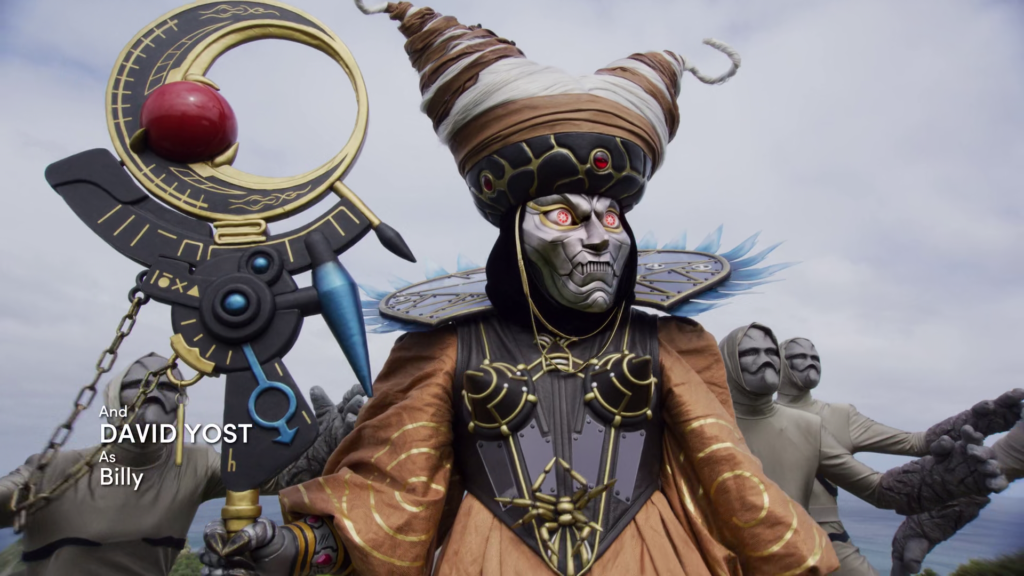
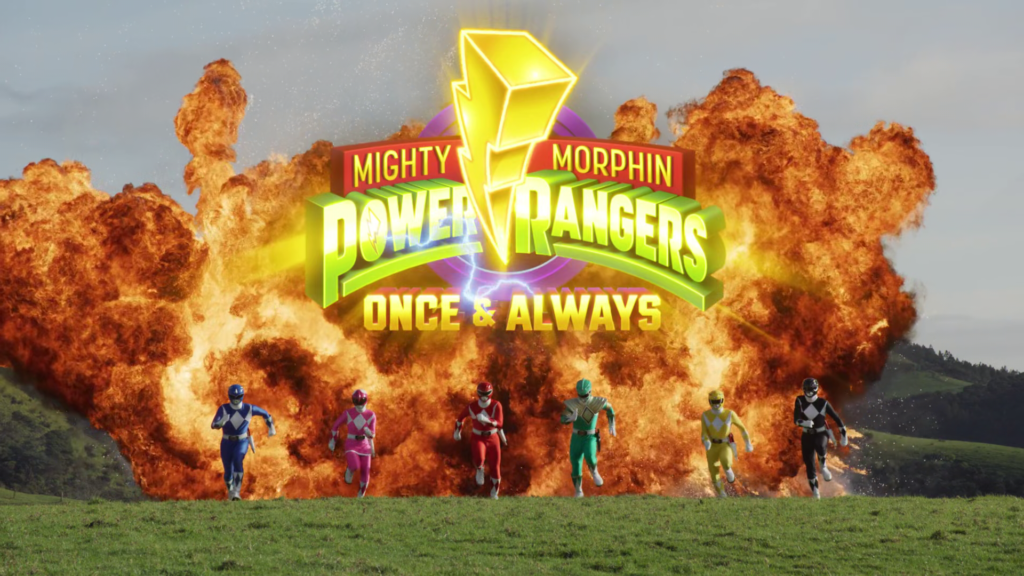
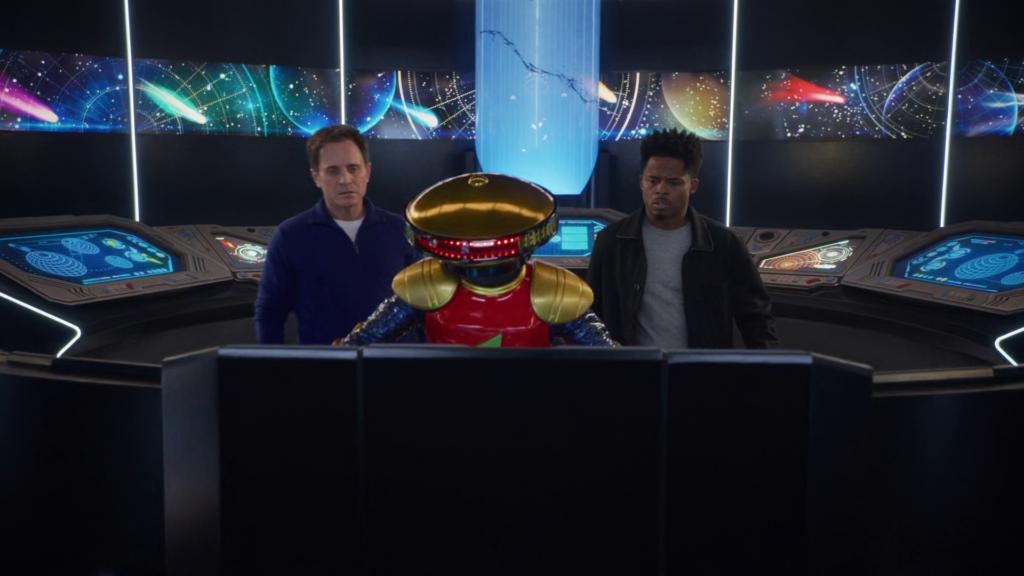
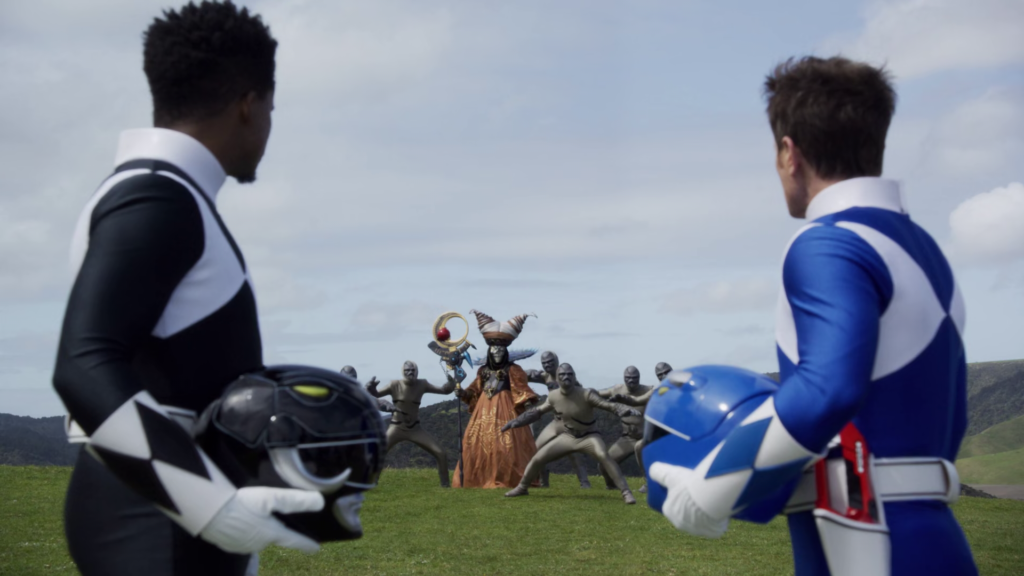

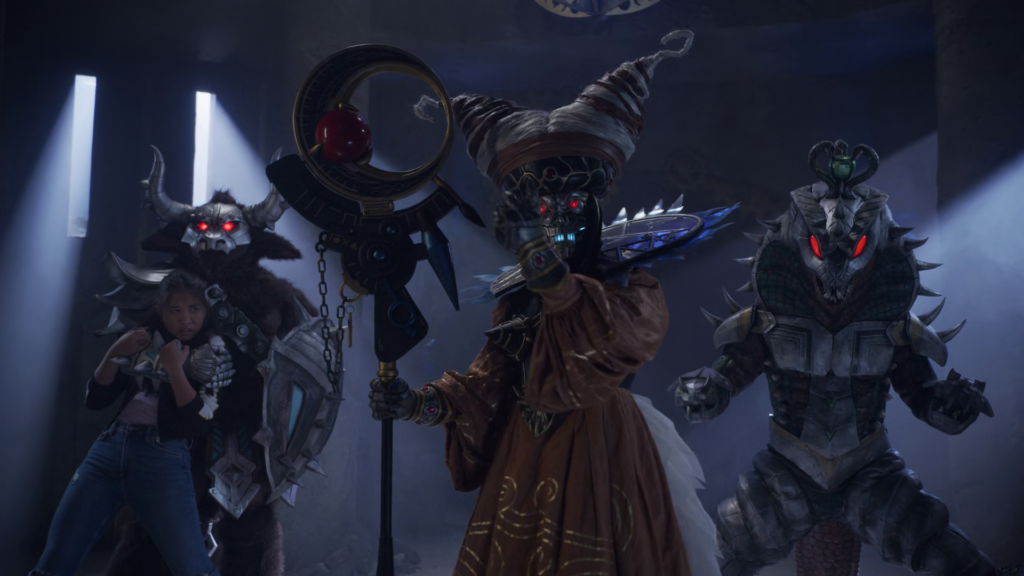
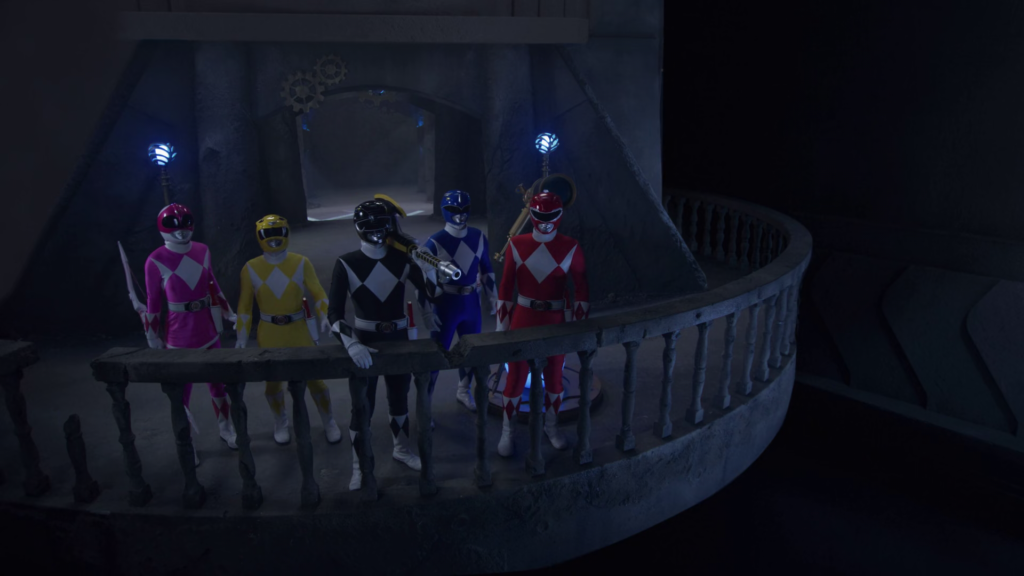
Mighty Morphin Power Rangers: Once and Always (2023)
Film review #557
Director: Charlie Haskell
SYNOPSIS: Rita Repulsa has returned in a robot body, and is out to get the original power rangers. The yellow ranger, Trini is killed when she sacrifices herself to save the blue ranger Billy. One year later, Robot Rita returns with her plan to absorb the power rangers into her new machine to take their power for herself. The rangers must reunite to take down Rita and save their friends…
THOUGHTS/ANALYSIS: Mighty Morphin’ Power Rangers: Once and Always is a 2023 special released as part of the thirtieth anniversary of the Mighty Morphin ‘ Power Rangers TV series, and the beginning of the franchise as a whole. In the opening scene, we see the power rangers in battle against Robot Rita Repulsa, and the yellow ranger, Trini, sacrificing herself to save the blue ranger Billy, which is quite a serious twist. Fast forward a year later and we see Trini’s daughter Minh being raised by Zack, the black power ranger who is now her guardian. Unfortunately, Robot Rita has returned, and has a new plan to kidnap the power rangers to fuel a new machine and absorb their power. She starts kidnapping rangers from all over the world, including the original Red, Green and Pink ranger. Zack and Billy, the black and blue rangers, enlist the help of one-time rangers Rocky and Kat to help them stop Rita’s scheme before it’s too late. The story feels very much like a typical Power Rangers plot line, and could have easily been lifted from an episode of the series. On top of that though, they add in a more mature storyline around the death of Trini, and her daughter, who is set on revenge, and exploring what it means to be a power ranger, which provides enough emotional scenes alongside the typical martial arts action. There’s a decent balance between what you expect from the franchise, and the more in-depth mature story that a now-older Power Rangers fan can enjoy too, which is nice. It’s definitely not a high-budget reboot or remake, and perhaps offers no surprises in terms of story, but it captures that silly, low budget quality of the original that still had the charm to capture children’s imaginations thirty years ago, and in some ways it’s nice that it didn’t try to be anything else.
With regards to the characters, only Zack and Billy, the original black and blue rangers return. This leads to bringing in Rocky, who succeeded as the red ranger, and Kat, who became the pink ranger. The death of Trini, the yellow ranger follows from the death of her original actress. The green ranger Tommy, Jason David Frank declined to appear, but also died shortly after the filming was done, and Austin St. John and Amy Jo Johnson, the original red and pink ranger) also declined to appear. All in all, the cast is very much half complete, and that’s before you include that the original Rita Repulsa and Zordon actors also passed away, and while Zordon did not return, the voice for Rita’s robotic replacement is quite a solid performance. The cast of Power Rangers has always been a revolving door of actors as they leave and a new one takes on the suit, and this special tries to both reference them all, while still focusing on the original team. As such, even if you’re a Power Rangers fan, you might not recognise all the references and characters if you didn’t watch past a certain point in the series. Despite this, Rocky and Kat play their characters well, and while the acting is sometimes a bit flat and cheesy, again it’s what you expect from the series. The special does feel like it has to navigate around the missing cast a bit to try and fit everything together, but at it’s heart it’s still a typical Power Rangers story that’s simple enough to follow.
All the typical beats and action are here in this special: from the hand-to-hand combat with Rita’s goons, the Rangers fighting with the weapons, and the Megazord fight, everything is here that you would expect, along with the cheesy one-liners to go with them. It’s really a love letter to the franchise that captures the feel of the Power Rangers, while also reflecting on some more mature and emotional story elements that the now-older fanbase can appreciate. If you want a reboot, you can watch the 2017 Power Rangers movie, but Once and Always is one for those who watched the original series on Saturday mornings and had their imaginations captured. I was never a huge Power Rangers fan as a kid (I always preferred cartoons over live-action shows), but even as a sometimes fan, I found plenty in here that was entertaining enough, and allowed me to remember the series fondly. It’s full of references and everything Power Rangers, and while you’re probably not missing out on much by not watching it, it’s still entertaining enough, and a fitting tribute to those actors who are no longer with us. As the special concludes with: Once a ranger, always a ranger…

